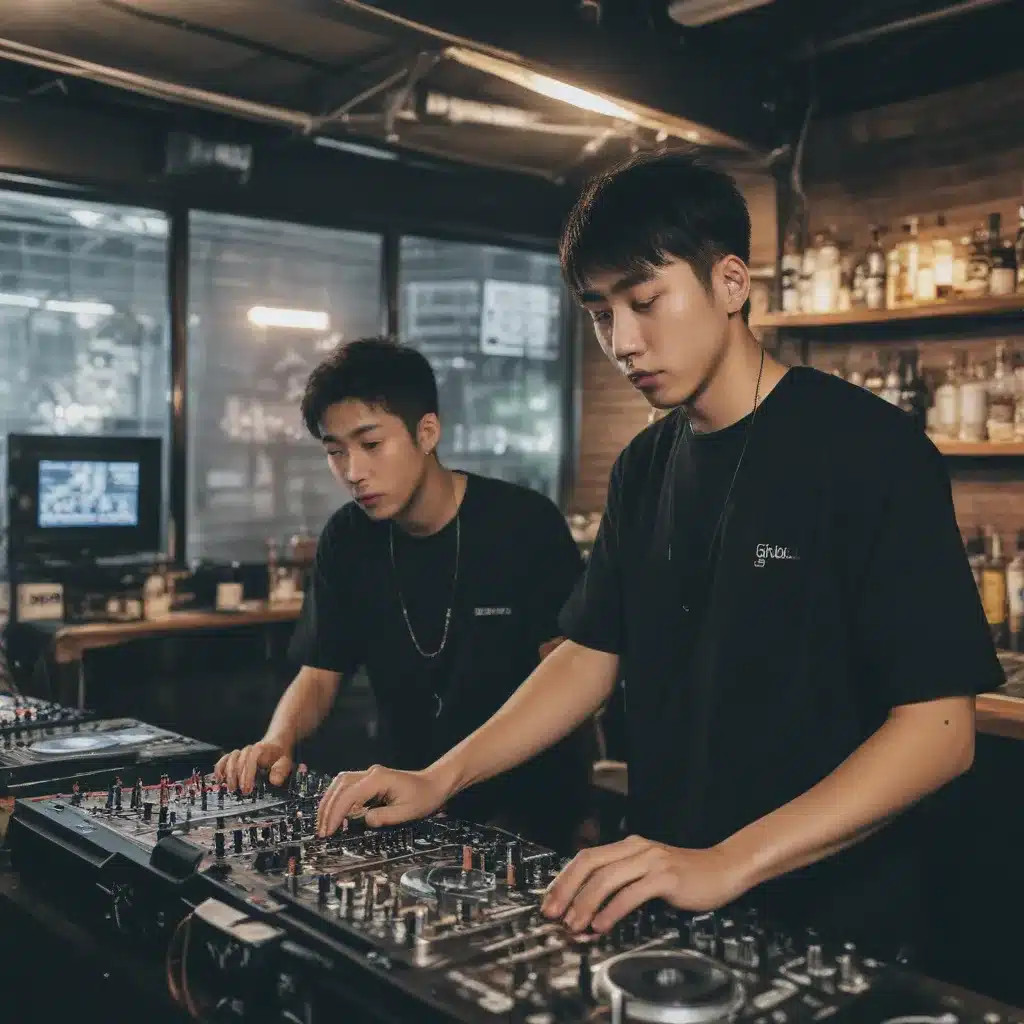
Chasing the Beat in the Big City
I’ll never forget my first night in Seoul. Fresh off the plane, I was eager to immerse myself in the city’s legendary electronic music scene. As I strolled the neon-drenched streets of Itaewon, the pulsing beats and infectious energy drew me in like a moth to a flame.
My quest for the perfect club began at Pumpkin Pose Lounge, a name that had piqued my curiosity. But as I stepped through the doors, I quickly realized this was no underground rave. The music was generic, lacking the raw intensity I craved. Disappointed, I soldiered on, determined to uncover the city’s hidden gems.
Uncovering Seoul’s Underground
It was on Reddit that I stumbled upon a promising lead: “Where are the EDM/rave scene in Seoul/Itaewon?” The comments were filled with frustrated nightlife-seekers, all in search of that elusive underground scene. One user’s lament caught my eye: “I’ve spent the last 6 days trying to find a legit EDM scene – Trap, progressive house, acid, bass, dubstep, even pop DJ, techno would be ok haha.”
Encouraged by their shared struggles, I pressed on, determined to uncover Seoul’s best-kept musical secrets. My next stop was Vice’s article on the city’s underground scene. Here, I met a cast of colorful characters – DJs, producers, and musicians – who opened my eyes to the vibrant creative community thriving beneath the surface.
CIFIKA, a singer-songwriter who had returned to Korea after a stint in LA, described the scene as “warm and cold at the same time.” While there was a strong sense of camaraderie among the artists, the market itself could be ruthlessly competitive. But that didn’t deter her – in fact, she was gearing up to take the stage at the prestigious SXSW festival.
Techno Takes Over
As I delved deeper into my research, a recurring theme emerged: techno. According to the Reddit thread, the Faust club was singled out as the “best techno club in the city.” And in the Vice article, up-and-coming DJ Minju Lee, aka MUSHXXX, highlighted the Itaewon neighborhood as a hub for underground clubs and bars.
Intrigued, I set out to explore this techno-centric underbelly of Seoul’s nightlife. My first stop was Contra, a dimly lit, industrial-chic club that had been praised for its cutting-edge sound system. As I stepped inside, the thunderous beats reverberated through my chest, setting my heart racing. The dancefloor was a sea of swaying bodies, lost in the hypnotic rhythms.
But Contra was just the beginning. I soon discovered a whole network of techno-focused venues, each with its own distinct personality. Cakeshop, for instance, was renowned for its intimate, community-driven vibe, while Pistil offered a more high-energy, hedonistic experience. And then there was Soap, a cozy bar that played host to some of the city’s most cutting-edge DJs.
The Rise of Female Talent
One of the most exciting aspects of Seoul’s electronic scene, as highlighted in the Vice article, was the growing prominence of female artists. Names like CIFIKA, LEEVISA, and MUSHXXX were carving out their own unique spaces, challenging the traditional male-dominated narrative.
LEEVISA, a DJ and producer, spoke of the “wonderful” increase in women and LGBTQIA+ artists, noting that while the scale of the scene may seem small, “huge things are going on.” MUSHXXX, a model-turned-DJ, echoed this sentiment, expressing her excitement for the future of the industry.
These trailblazing women weren’t just making waves – they were redefining the very essence of Seoul’s electronic music. Their resilience, creativity, and unapologetic authenticity were a testament to the power of diversity and inclusion in a scene that had long been dominated by men.
A Melting Pot of Sounds
As I delved deeper into Seoul’s electronic landscape, I was struck by the sheer diversity of musical styles on offer. From the pulsing techno of Faust to the deep house grooves of Closet Yi’s parties, the city’s DJs and producers were pushing the boundaries of what was possible.
Take Closet Yi, for example, a DJ, graphic designer, and party organizer who had discovered her passion for music while raving her way through her early 20s. She had since become a driving force in the city’s house music scene, booking international acts and introducing a new generation of fans to the genre.
And then there was Jvcki Wai, a rapper who had initially dreamed of being a singer-songwriter or rockstar. Her fascination with the “complicated” art of crafting rap lyrics and the “lack of formality” in hip-hop had led her on a journey into the heart of Seoul’s underground.
A Sanctuary for the Senses
As I made my way back to my hotel, the streets alive with the energy of the city, I couldn’t help but feel a deep sense of admiration for the artists and innovators who were shaping Seoul’s electronic music scene. In a world that often prioritizes commercial success over artistic expression, these passionate individuals were carving out a space for themselves, creating a sanctuary for the senses.
Whether it was the pulsing techno of Faust, the intimate house grooves of Closet Yi’s parties, or the boundary-pushing sounds of CIFIKA and her peers, the city’s electronic music scene was a testament to the power of creativity, community, and a relentless pursuit of the beat. And as I prepared to return home, I knew that I would carry the memory of this vibrant, ever-evolving landscape with me forever.

